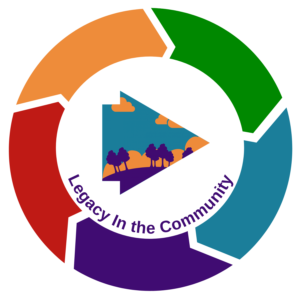Primarily, Legacy in the Community’s main projects centre around disability rights to employment, mental health, and history relating to local communities. We have created this webpage to inform visitors about how our current focuses have an impact on people around us, and why we endeavour to provide support.
Why we provide support for people with disabilities and long-term health conditions
In recent years, the UK government has made some progress in improving disability rights and inclusion, including the introduction of the Disability Discrimination Act in 1995 and the Equality Act in 2010. However, there is still a long way to go to ensure that people with disabilities in the UK are fully included in society and have equal access to opportunities and services.
Here are some statistics relating to disability in the UK:
- The latest estimates from the Family Resources Survey (FRS)*show the number of disabled people rose from 12.2 million (19%) in 2012 to 2013 to 16.1 million (24%) in the most recent survey year, an increase of 3.9 million people. This represents 24% of the population.
- There was an increase of four percentage points in the percentage of disabled children, from 7% in 2012 to 2013 to 11% in the most recent survey year. For working-age adults, the proportion of disabled people rose from 16% in 2012 to 2013 to 23% in the most recent survey year, an increase of seven percentage points.
- The percentage of females who were disabled increased from 21% (6.6 million) in 2012 to 2013 to 26% (8.8 million) in 2022 to 2023. Over the same period, the percentage of males who were disabled rose from 18% (5.5 million) to 22% (7.2 million).
- Impairment types reported by disabled people, 2022 to 2023. For disabled working-age adults, 47% reported a mental health impairment, the most prevalent category among this age group. This was closely followed by a mobility impairment, at 41%. The third most likely impairment type was to do with stamina, breathing or fatigue, at 34%.
- People with disabilities are more likely to be unemployed than non-disabled people. In 2020, the employment rate for disabled people in the UK was 52.7%, compared to 81.7% for non-disabled people.
- People with disabilities are also more likely to live in poverty. In 2020, the poverty rate for disabled people in the UK was 30%, compared to 18% for non-disabled people.
- Access to services and public spaces is still a major issue for people with disabilities in the UK. According to a 2020 report by the charity Scope, two-thirds of disabled people in the UK experience barriers to accessing everyday services, such as shops and restaurants.
- Hate crimes against people with disabilities are on the rise in the UK. In 2019/20, there were 7,304 recorded hate crimes related to disability, an increase of 6% compared to the previous year.
These statistics show that there is still a lot of work to be done to improve the lives of people with disabilities in the UK, and to ensure that they have equal access to opportunities and services.
*Key findings from the Family Resources Survey for the financial year 2022 to 2023
Men’s mental health and well-being
Men’s mental health is a significant issue in Wales, with many men experiencing mental health problems and facing barriers to accessing appropriate support.
Here are some statistics relating to men’s mental health in Wales:
- Suicide is the leading cause of death for men under 50 in Wales. In 2019, there were 257 deaths by suicide in Wales, with men accounting for 75% of those deaths.
- Men in Wales are less likely than women to seek help for mental health problems. In a 2019 survey, 38% of men in Wales said they had not sought help for a mental health problem because they felt embarrassed or ashamed.
- Men in Wales are more likely to experience mental health problems related to work stress. In a 2019 survey, 25% of men in Wales reported feeling work-related stress, anxiety, or depression, compared to 19% of women.
- Men in Wales from certain groups, such as BAME men and gay and bisexual men, may face additional barriers to accessing mental health support.
- Social isolation and loneliness are risk factors for poor mental health in men in Wales. In a 2020 survey, 42% of men in Wales reported feeling lonely during the COVID-19 pandemic.
There are several organisations and resources available in Wales to support men’s mental health, such as the charity Hafal, which provides a range of mental health services and support for people in Wales, including a helpline and advocacy services. Other resources include the Welsh Government’s “Together for Mental Health” strategy, which aims to improve mental health services and support in Wales, and the Men’s Sheds movement, which provides social and community spaces for men to connect and share skills.
However, there is still a need for greater awareness and understanding of men’s mental health issues in Wales, and for better access to support and treatment, particularly in rural and remote areas of the country.
Understanding our local history
The history of Wales encompasses many trials and tribulations and tends not to feature prominently on school curriculums, which leads to a reduced knowledge and understanding of local history. Legacy in the Community seeks to create and develop an archive of oral history, where memories and recollections can be preserved to share with future generations.
Learning about local history is important for Wales for several reasons:
- Understanding the history of Wales and its local communities can help to preserve and celebrate Welsh culture and heritage. By learning about the events, traditions, and customs that have shaped Wales over time, people can develop a sense of pride and connection to their local community and the wider Welsh identity.
- Studying local history can provide insight into the challenges faced by local communities in the past, and how these challenges have been overcome. This can help to inform present-day decision-making and inspire new solutions to ongoing challenges.
- Local history can be a valuable resource for promoting tourism and economic development in Wales. By showcasing the unique cultural and historical attractions of local communities, Wales can attract visitors and support local businesses, creating jobs and economic opportunities.
- By studying local history together, people can develop a shared sense of identity and purpose, promoting community cohesion and social harmony. This can lead to greater community engagement and participation in local initiatives and events.
Overall, learning about local history is an important way to connect with Welsh culture and heritage, understand the challenges faced by local communities, promote tourism and economic development, and foster community cohesion. By valuing and investing in local history, Wales can preserve and celebrate its rich cultural heritage, while creating a brighter future for all.

Need some assistance?
Contact our friendly and knowledgeable team:
Call: 01685 709 549
Email: [email protected]

